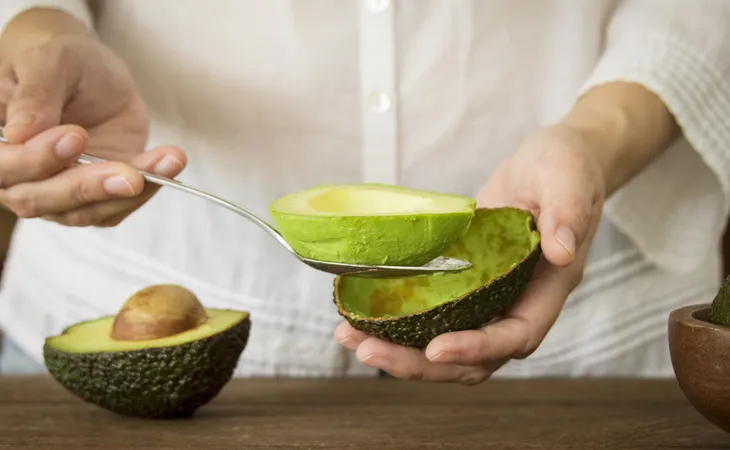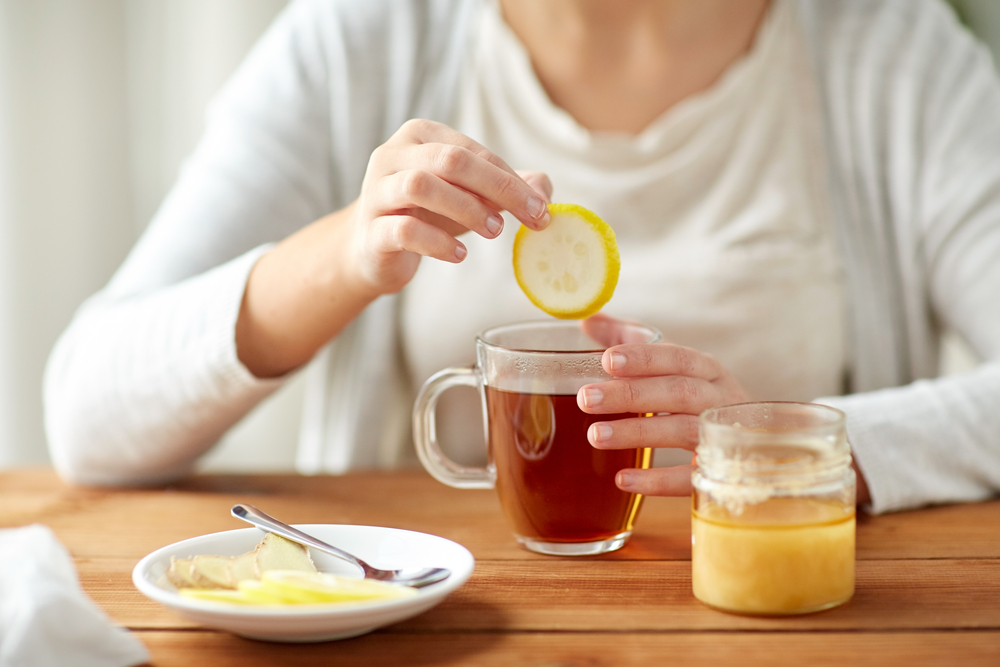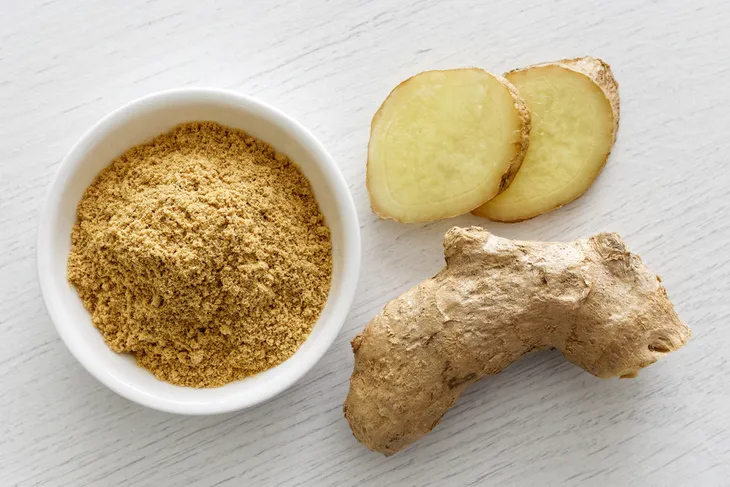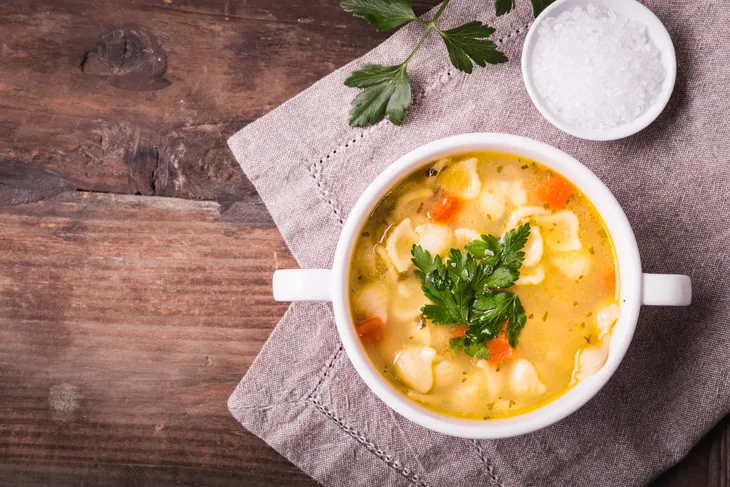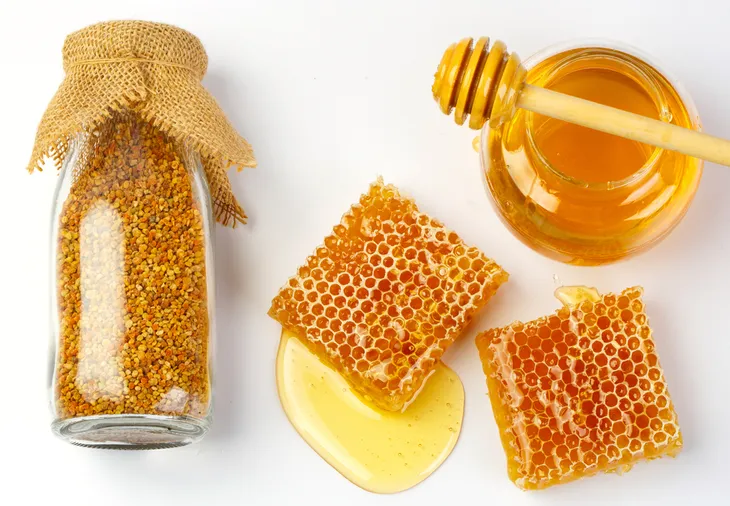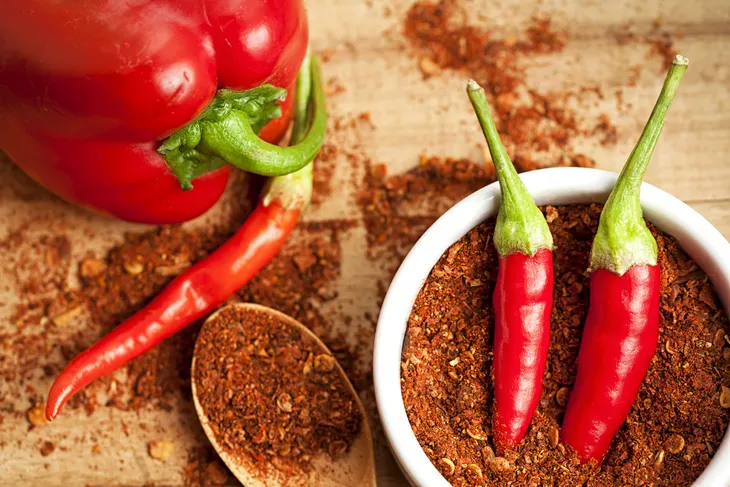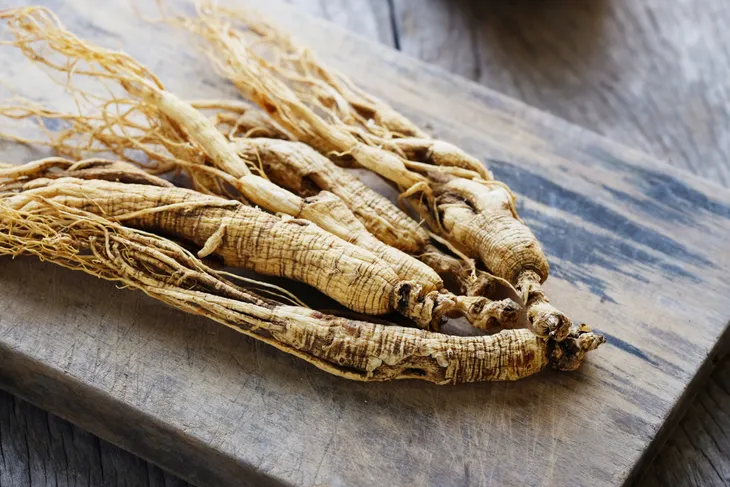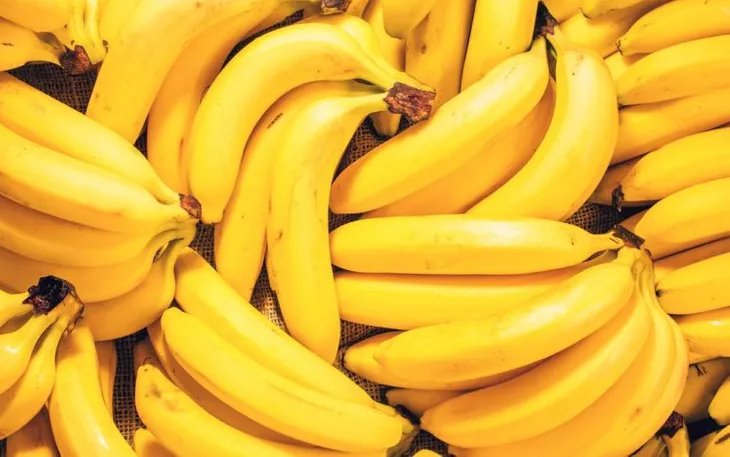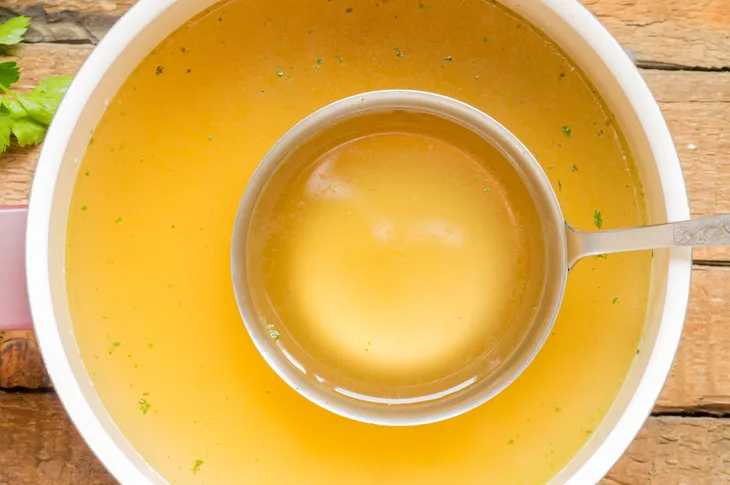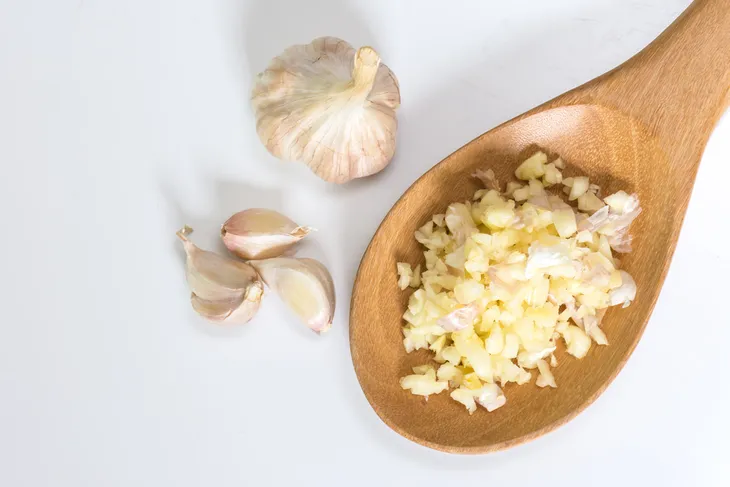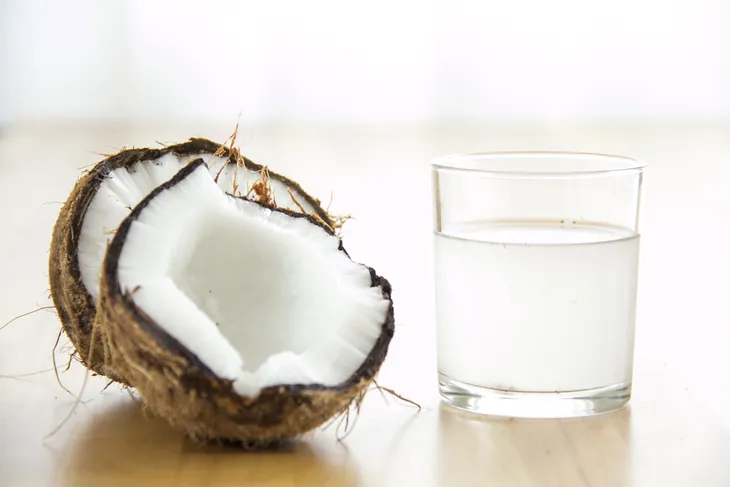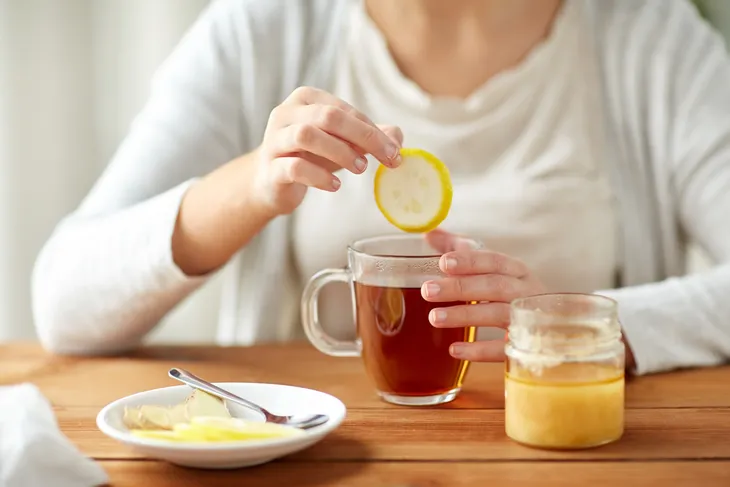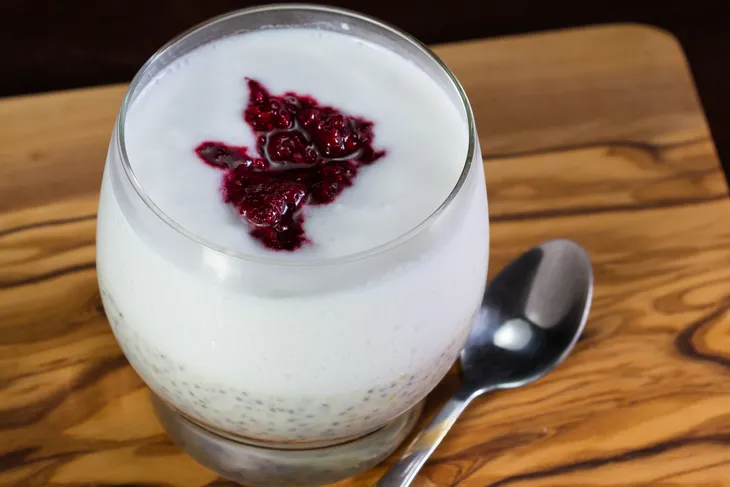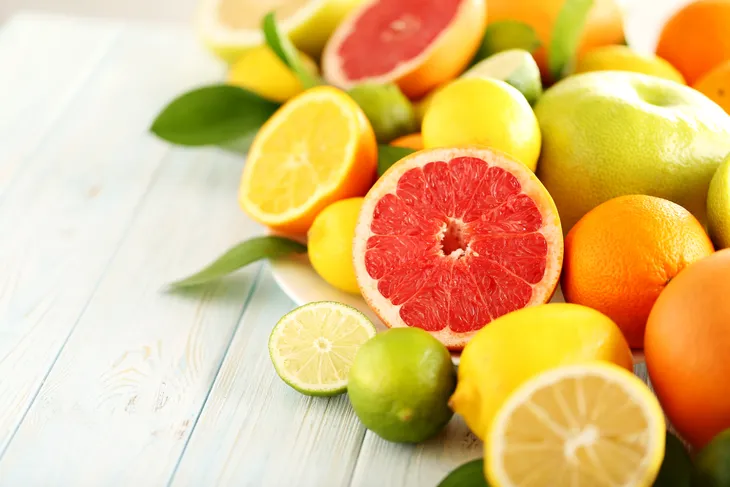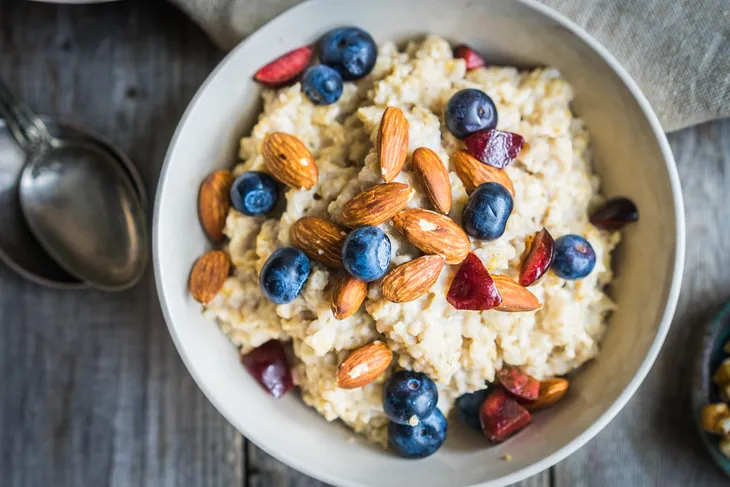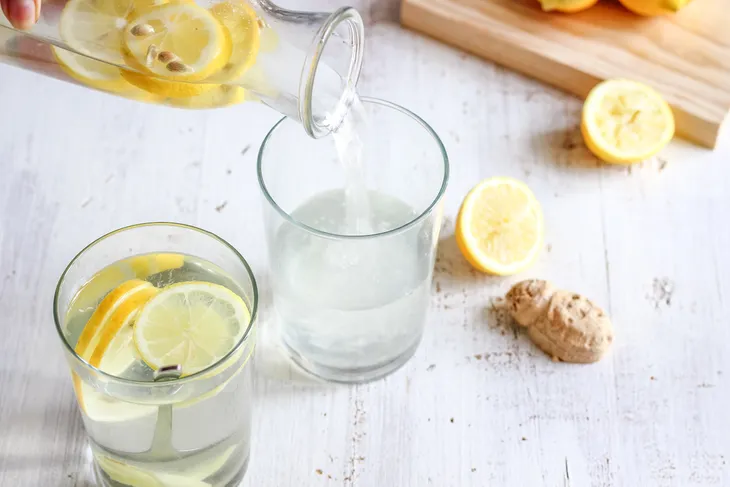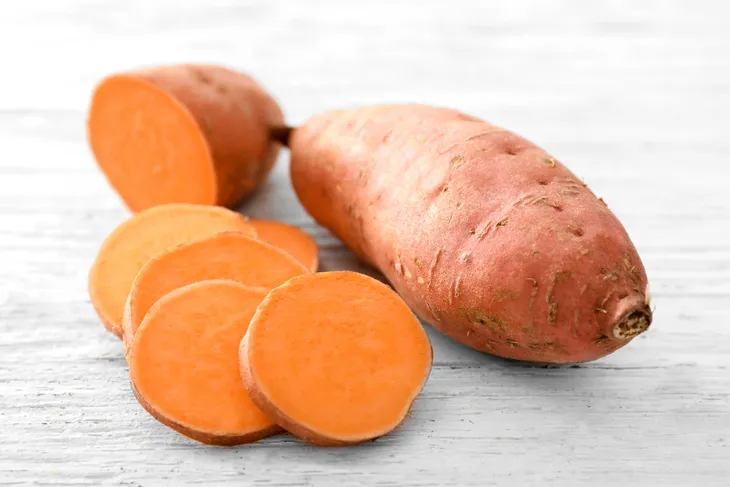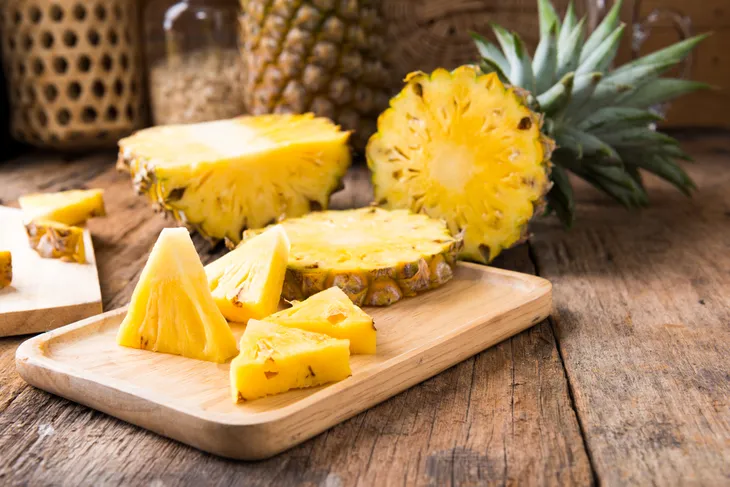Being sick sucks! You feel miserable and you don’t want to spend your energy cooking. There is an old wives tale saying to “feed a cold and starve a flu.” This is not necessarily true. When you’re sick, your body is expending energy to make you healthy again. To help your body heal, doctors suggest fuelling it with healthy, nutritious food.
Hydrating yourself is especially important when suffering from nausea, vomiting, and diarrhea. This can leave you seriously dehydrated. It can be hard to keep down food, but make sure you keep drinking and try eating easily digestible foods.
When you have a sore throat, you might not want to eat. Swallowing can be very painful, making you hesitant to eat anything. The same can happen when you’re congested. You can lose your sense of smell, which is obviously linked closely to your sense of taste. If you can’t taste your food, you certainly won’t feel like eating.
We brought together 10 amazing foods that will help you heal when sick. Whether you are suffering from a cold or the stomach flu, we have some suggestions from experts on what to eat to get you healthy, faster…
Ginger
A common drink to enjoy when you’re sick is ginger ale, but have you ever wondered why? Ginger is a natural anti-nauseant. When you are feeling sick to your stomach, drinking ginger beverages can be the best option. Instead of pop, opt for a popular ginger soda that contains real ginger, not just ginger-sugar flavoring. You can also make your own ginger tea by pouring boiling water over slices of ginger and honey. Enjoy this hot beverage and feel the stomach relief.
According to a study from University of Rochester’s Dermatology and Radiation Oncology department, which monitored the effects of ginger prescribed to patients undergoing chemotherapy, a small, one-quarter teaspoon of ginger was effective in reducing symptoms of nausea by up to 40-percent.
Soup
Soup is another favorite when you are feeling sick. The warming broth relaxes your chest when you are congested. Garlic and onion broth give amazing nutrients and have been shown to be antimicrobial. Some people believe that you should restrict dairy intake when you have a lot of mucus and phlegm, which is true for creamy soups, like cream of chicken and mushroom, that can exacerbate coughing.
Although studies aren’t suggesting that a warm bowl of chicken soup will flat out cure what ails you, the popular and comforting home remedy has been credited for its ability to hydrate the body in hopes of fighting off infection, of reducing overall inflammation, and with freeing up congested airways, noses, and throats.
Honey
Not only is honey sweet and delicious, but it’s great for a sore throat. Honey is an antimicrobial and can help kill the bacteria on the back of your throat. Enjoy a spoonful of honey or mix it into tea. Warm honey tea can give amazing relief to a sore throat. The combination of the warm liquid and the bacteria-destroying honey is a powerful one-two punch. Mix it with ginger tea and you’ll have a delicious, soothing sore throat remedy.
Research presented at the National Meeting of the American Chemical Society (ACS), the world’s largest scientific society, found that honey is able to fight infection in multiple ways. For instance, honey has an arsenal of bacterial-fighting weapons on hand, such as polyphenols, high sugar concentration, hydrogen peroxide, osmotic effect, and a natural acidity, all which protect the body from bacteria and actively target and destroy bacterial cells.
Spicy Foods
When you’re congested, it may be hard to eat. You can’t smell, you can’t taste, and you’re just miserable. What you really need is to clear your sinuses and eustachian tube. The perfect remedy for this is to eat super spicy foods. Your body reacts to the burning sensation by loosening up the mucus that is clogging your body. Plus, the strong flavors will be easier for you to taste compared to tasteless, bland foods.
For instance, research from 2011 that was published in the journal, Annals of Allergy, Asthma & Immunology, lined cayenne pepper spice (or rather capsaicin, cayenne’s active ingredient) to improving circulation, making digestion more efficient, and even to relieving pain and congestion related to flu symptoms. The study prescribed capsaicin nasal spray to participants during a duration of two weeks and found that overall participants who used the spray suffered less congestion.
Ginseng
Ginseng is a popular ingredient in energizing drinks and cold remedy medications. One popular pill brand promises shorter illnesses with continued consumption of their ginseng product. You can easily make ginseng drinks and soup at home and forgo these manufactured concoctions. You can find ginseng at Asian grocery stores in dried and powdered form. Add ginseng to your honey tea and pop a root in your broth as you simmer soup. It will help re-energize your body, and reduce the duration and severity of your sickness.
According to a study from Georgia State University, red ginseng extract was able to effectively ward off influenza A viral infection. The study examined a group of mice infected with influenza A viral infection and given ginseng as treatment over a lengthy duration. Findings showed that mice who took the ginseng produced greater levels of flu-fighting antiviral proteins, resulting in an improved ability to fight the influenza and prevent future flu.
Cloves
Clove oil is commonly used in dental surgeries when packing open wounds in the mouth. It is a powerful alternative, topical pain killer. You can use this natural spice to your advantage when you have a sore throat. Add clove powder to your warm tea or chew on whole cloves for a more potent throat remedy. Be careful with clove oil as it can actually irritate the throat.
According to a study conducted at the Central Institute of Medical and Aromatic Plants, located in Lucknow, India, several anti-vital oils, including clove oil, was able to help battle a drug-resistant mutations of several bacterial infections, including Mycobacterium smegmatis, E. coli, and Candida albicans.
Crackers
If you have a stomach flu, eating may be the last thing on your mind. If you can manage it, unflavored, unsalted crackers are a great food to eat. Saltines can help absorb excess stomach acids when you have thrown up everything else. Enjoy simple crackers and not cheese, butter, or herb flavored. While these may taste better, they could be too heavy on your sensitive stomach. When you’re feeling up to it, add some natural nut butter on top of your crackers for protein and see how that goes down.
My doctor always recommends eating saltine crackers, or another bland cracker brand, as a way to reduce nausea associated with the stomach flu. Crackers work to quell nausea due to their high starch content, which effectively absorbs excess chinning stomach acid as well as pregnancy-related morning sickness.
Bananas
Bananas are another great food to have when you are feeling nauseated. They are high in fruit sugars, which can give you a much needed energy boost when you are sick. Bananas make up part of the BRAT diet, which is a recommended diet when suffering from nausea, vomiting, and diarrhea. BRAT stands for Bananas, Rice, Applesauce, and Toast. Enjoy any of these four foods knowing they are easy on the stomach.
Thank goodness for bananas, which effectively reduce nausea associated with flu, hangover, and morning sickness. Bananas are high in several nutrients that quell an upset tummy, including in pectin (which aids digestion and banishes toxins and heavy metals), prebiotics (which encourage the growth of good bacteria in the bowel), fiber (which aids healthy bowel health and soothes the digestive tract), electrolytes (which calm upset tummy and diarrhoea), and a gentle coating that prevents heartburn, ulcers, and coats and protects the lining of the stomach.
Popsicles
It seems any sort of illness can be lessened with a delicious popsicle. When you’re feeling sick, you may resist drinking liquids. This is the total opposite of what you need to do to get better faster. Stave off dehydration by consuming a variety of liquids. Popsicles are a great frozen liquid for you to enjoy.
The cold will also help numb a sore throat. Look for pure juice varieties of popsicles to get some natural fruit sugars and energy. Just be sure to look for popsicles that contain natural flavors and fruit juices. As refined sugars can give you a headache and further prevent the body’s ability to fight off infection. However, natural hydration with fruit bars will deliver the water and nutrients you need to stay energized and fight off that flu!
Orange Juice
Normally, most juices are high in sugar and overly processed. However, when you’re sick with a cold, a glass of 100-percent real orange juice (with pulp) can provide a vitamin kick when you’re not eating a lot or having trouble digesting foods high in fiber due to gastric distress. Juice is a great way to get vitamins and fruit sugar in an easily digestible format.
Real vegetable juices are also a great choice. Whatever you pick, just make sure it’s 100% pure fruit or vegetable juice with no added refined sugars, colors, or chemicals. Plus, the natural vitamins and nutrients in real fruit juice (such as vitamin C) will boost the immune system and aid in energy stores to give your body that zip it needs to whip that flu bug.
Broth
We already mentioned that it’s good to eat soup while sick, but it doesn’t have to be a fancy soup like chicken noodle or a hearty vegetable soup cause let’s face it, nobody wants to whip up either of these while sick. Another great food to enjoy is just plain old broth. Healthline points out that most broths contain “calories, vitamins and minerals such as magnesium, calcium, folate and phosphorus,” plus when their piping hot, they act as a natural decongestant! Someone suffering from a sore throat or upset stomach might not feel like eating anything, so broth is a good go-to food that is easy to get down and still provides a nice and full feeling afterwards.
Not only do they contain lots of vitamins and minerals, drinking broth is a good way to stay hydrated because dehydration is a common problem for people who are sick. To limit the amount of sodium, make sure to purchase the low-sodium store bought versions. An even better option is to make the broth at home because then you’ll have the chance to add extra calories, proteins and nutrients, says Healthline.
Garlic
Garlic might cause bad breath, but it definitely has its benefits. Garlic has “been used as a medicinal herb for centuries and has demonstrated antibacterial, antiviral, and antifungal effects,” writes Healthline. Even more, it gives our immune system a much needed boost.
There have been human studies on the effects of garlic for people suffering from either a cold or flu and most have found that garlic can not only decrease symptoms, but also speed up the recovery process. Healthline cites one study which found that people who consume garlic are sick less often. Another study found that not only do people who take garlic get sick less frequently, the duration of their sickness was also on average 3.5 days less than those who don’t. Lastly, the source looked at other studies that found “showed that aged garlic extract supplements can enhance immune function and decrease the severity of colds and the flu.”
Coconut Water
Drinking water is important when sick which we will discuss more later on in this article, but an even better option is coconut water. It sounds pretty fancy and it’s definitely a little more expensive than regular water, but that’s because it’s a lot sweeter and contains glucose and electrolytes that will help with hydration.
Healthline cites studies that show “coconut water helps you rehydrate after exercise and mild cases of diarrhea. It also causes less stomach discomfort than similar drinks.” The source also lists other animal studies which found that coconut water “contains antioxidants that can fight oxidative damage and may also improve blood sugar control.” Healthline does point out that there was one study which found coconut water could cause bloating, so if you’re new to this beverage, it might be a good idea to start off drinking it in small doses.
Hot Tea
A cup of tea is often a go-to for many people when they’re not feeling well and there’s a reason for that! Just like soup or a steaming cup of broth, a cup of hot tea is a natural decongestant that will help clear sinuses. Unlike coffee which can cause dehydration, most teas have far less caffeine than a cup of Joe, so there’s no need for concern over water loss. In fact, Healthline states that drinking tea is a good way to keep hydrated while battling an illness.
The major benefit of drinking hot tea is the polyphenols which “are natural substances found in plants that may have a large number of health benefits. These range from antioxidant and anti-inflammatory action to anti-cancer effects,” writes Healthline. One of the best polyphenols are tannins which have “antiviral, antibacterial and antifungal properties.”
The source cites two separate studies, one found that the tannic acid in black tea can decrease the amount of bacteria that grows in the throat while the other found that hibiscus tea reduced the growth of avian flu when studied in a test tube. Another great tea to try when sick is echinacea which has been known to shorten the duration of cold and flu symptoms.
Yogurt
You probably assume we put yogurt on this list because it’s easy to eat and while that’s an added bonus, there are better benefits to this food. According to Healthline, yogurt is “rich in calcium and full of other vitamins and minerals.” Some like Greek yogurt even have “beneficial probiotics.”
Today refers to research published in the Korean Journal of Family Medicine which “found that probiotics can help to prevent and treat the common cold.” Researchers found that people who ate probiotics on a regular basis were less likely to get sick than those who didn’t. Healthline also reiterates this fact by writing, “evidence shows that probiotics can help both children and adults get colds less often, heal faster when sick and take fewer antibiotics.” Another study in the British Journal of Nutrition found that children who took probiotics were able to recover faster and experienced symptoms that were 55-percent less severe.
Citrus Fruits
We’ve all been told the myth that vitamin C fights off colds or can cure a cold, and while vitamin C is good for us, it can’t cure a cold. Women’s Health points out that the true part of that statement is that citrus fruits like oranges, lemons, grapefruits, and limes have a white flesh called the pith that contains lots of flavonoids which can help boost our immune system and speed up the recovery process from an illness.
Another great fruit to eat when sick is kiwi. Jim White, RDN, ACSM Ex-P Owner of Jim White Fitness & Nutrition Studios told Food Network that kiwi actually has more vitamin C than an orange! To enjoy while sick, toss them into a salad or blend them up in an easy to drink smoothie.
Oatmeal
Oatmeal is one of those hearty comfort foods we can turn to when we need a nice hot meal. It’s a great nutritious breakfast food, but only if you’re using those steel-cut oats and not the pre-packaged artificial ones that are often loaded with sugar. In addition to being packed with protein, according to Healthline there’s about 5-grams of protein in just half a cup, it can also “stimulate the immune system and improve blood sugar control.” It’s also nice bland food that might help those who are struggling to keep their food down.
A 2015 animal study published in the Food & Function journal found that beta-glucan, which is a type of fiber found in oats, was able to “decrease inflammation in the gut. This could help relieve symptoms such as intestinal cramping, bloating and diarrhea,” writes Healthline.
Water
Drinking an adequate amount of water is important for overall health. We should all be drinking at least eight glasses of water each day. Now think of it this way, if water is an important part of keeping us healthy when we’re not sick, it’s even more necessary when we are!
You’ve also probably heard many times that it’s important to drink lots of fluids when sick because it’s easy to become dehydrated which comes with it’s own slew of problems “ranging from weakness and confusion to heart palpitations and dizziness,” writes Eat This, Not That!
Sweet Potatoes
The human body is amazing. It’s hard wired to do some pretty incredible things like fight off any illnesses that might come our way. When we’re suffering from a cold, the flu, or anything like that, our immune system goes on the defense. While our body is busy fighting off harmful viruses, we should be doing our part to get lots of rest and eat foods that will help replenish all that energy it’s using to get us back on track.
Eat This, Not That! explains what foods we should be eating like carrots and sweet potatoes because they give us a good boost of nutrients like vitamin A and C. To enjoy these foods in a way that is both healthy and appealing, try mashing them up or roast them with some olive oil and herbs.
Pineapple
Feeling a little congested or full of phlegm? Eat This, Not That! suggests eating some pineapple! This sweet and sticky fruit contains bromelain which has been known to thin mucus. A study performed by the University of Michigan Health System found that bromelain “has been shown to thin mucus associated with conditions like sinusitis.” The best part about this one is that pineapple is super delicious and incredibly versatile! There’s so many ways to include this fruit in your diet, even when sick. You could cut it up and put it on top of a bowl of steaming oatmeal, blend it up in a smoothie, or just eat it on its own.
Salmon
Salmon is often touted as being one of the healthiest fish to eat because it’s high in omega-3 fatty acids and is nice and lean which means it won’t pack on the pounds. Well it’s also a good option for those who are sick because it’s nice and soft in texture, high in protein, and a 2010 study in the Nutrient journal found that those omega-3 fatty acids has anti-inflammatory effects. Healthline also notes that salmon is a good source of vitamin D “which many people are lacking in. Vitamin D plays a role in immune function.”
Avocado
Not many people need more reason to eat avocados because they’re just so delicious and versatile! They’re a great topper or addition to many meals, a dip for crackers, or even be a yummy spread for toast. Healthline points out that avocados are also a great thing to eat when sick. Most people who eat avocados already know one of their greatest benefits and biggest selling points is that they’re low in calories, but high in fat. Don’t worry! Not the bad fat. They’re made up of healthy monounsaturated fats. In addition to that, the source states that they’re “a good source of fiber, vitamins and minerals.”
Okay, so what does this all have to do with being sick? Well, Healthline writes that avocados are good for people who are battling a cold or flu because “they provide calories, vitamins and minerals that your body needs. They’re also soft, relatively bland and easy to eat.” Someone who’s suffering from a sore throat and having a hard time eating, but needs fuel and nutrients to help their body fight off their illness might want to try eating half an avocado. The taste won’t upset them and the texture is so soft they’ll barely feel it goes down! To top it all off, this food contains oleic acid which has shown to “decrease inflammation while also playing a role in immune function.”
